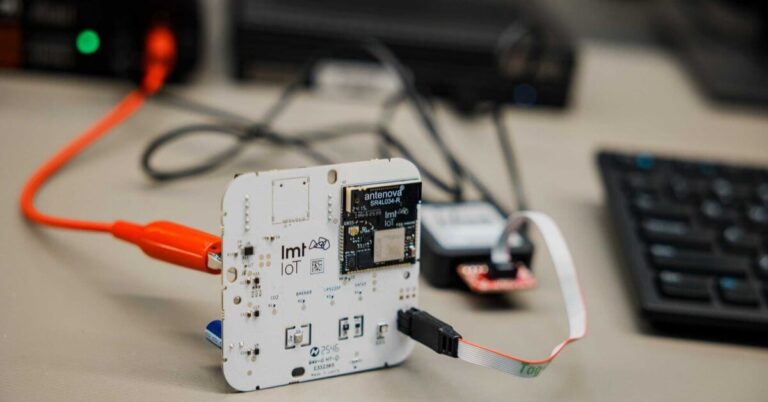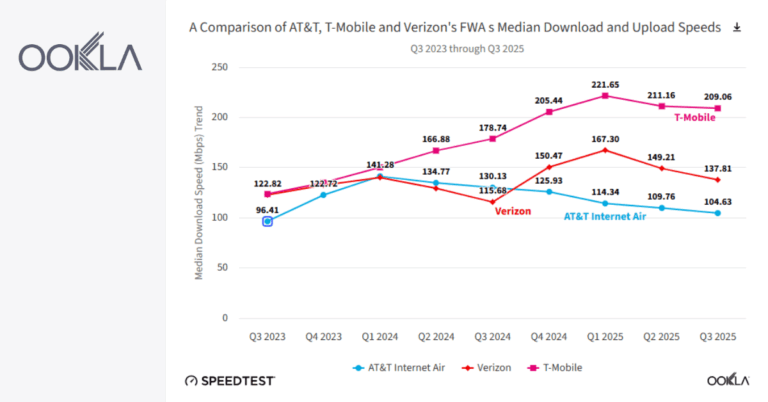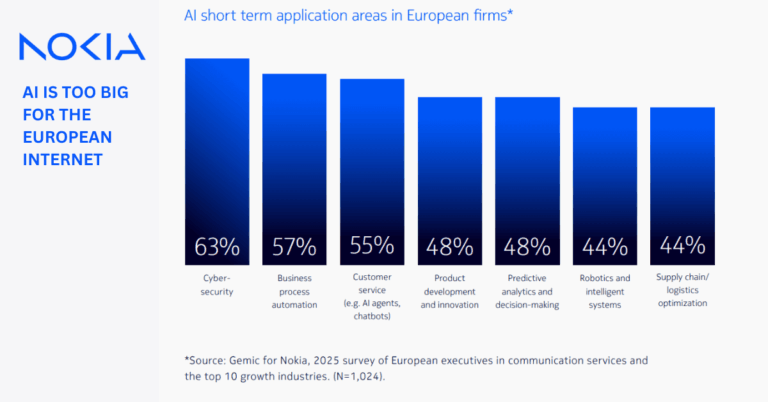Goldman Sachs analyst James Schneider, Ph.D., has initiated coverage on the U.S. Telecom Services and infrastructure sector, focusing on 14 companies. Schneider is particularly optimistic about wireless carriers and data centers, predicting significant opportunities in these areas due to the increasing demand for AI and data center services.
Transformation in the U.S. Telecom Sector
Schneider highlighted that the U.S. telecom industry is undergoing a significant transformation. After a period marked by shareholder capital destruction, U.S. telecom operators are now refocusing on their core businesses. This shift leads to a healthier growth trajectory and improved margin dynamics, creating opportunities for substantial capital returns and stock re-ratings.
Reduced Competition and Capital Intensity Boosts Telecom
For the first time in a decade, U.S. wireless operators are experiencing a simultaneous moderation in competitive and capital intensity. This change is expected to drive better growth and margins. Companies like Verizon, AT&T, and T-Mobile are particularly well-positioned to benefit from this trend.
Challenges and Opportunities for U.S. Telecom Towers
While U.S. towers might not enjoy the same structural tailwinds as in the past decade, Schneider suggests that “self-help” actions could unlock significant shareholder value. This includes strategic moves to enhance operational efficiency and optimize asset utilization.
Broadband Competition Intensifies with 5G and Fixed Wireless
The deployment of 5G technology has not resulted in a revolutionary “killer app” as many had hoped. However, it has enabled telecom companies to compete for broadband customers outside their traditional footprints through Fixed Wireless Access (FWA). This shift is increasing competition for traditional broadband companies, including cable operators, making it difficult for them to gain subscribers while they upgrade their networks. The potential of 5G and FWA to disrupt the broadband market is significant, offering an alternative to traditional wired broadband services.
AI Drives Growth and Efficiency in the Telecom Sector
AI represents a major opportunity for the telecom sector. Schneider believes that data center operators will benefit from cyclical demand created by Generative AI and supply constraints due to power limitations over the next 12 months. AI is also seen as a driver of efficiency gains, allowing for margin expansion. Integrating AI into telecom operations can improve network management, predictive maintenance, and enhanced customer experiences.
Analyst Stock Ratings and Projections for the Telecom Sector
Schneider’s Buy ratings reflect stocks where the market has yet to fully appreciate the sustainability of growth or where the potential for cyclical recovery in fundamentals is underpriced.
- Verizon Communications Inc (NYSE): With a $50 price target, Verizon is regaining momentum in its core wireless franchise and is set to benefit significantly from fixed wireless in both consumer and business sectors. Verizon’s strategic investments in 5G and network expansion are expected to drive growth.
- AT&T Inc (NYSE): With a $22 price target, AT&T is continuing its transformation by refocusing on its core business, extending its fiber broadband leadership, and maintaining growth in its wireless franchise. AT&T’s emphasis on fiber deployment and network enhancements positions it for long-term success.
- T-Mobile US, Inc (NASDAQ): With a $200 price target, T-Mobile is expected to continue its core wireless growth, with broadband driving the next phase of growth. T-Mobile’s aggressive 5G rollout and competitive pricing strategy make it a formidable player in the market.
- Frontier Communications Parent, Inc (NASDAQ): With a $29 price target, Frontier is the top pick among wireline peers, poised to execute its pivot to being a fiber broadband provider. Frontier’s focus on fiber infrastructure is expected to enhance its competitive position and drive subscriber growth.
Analyst Sell Ratings and Valuations for the Telecom Sector
Schneider’s Sell ratings include:
- Charter Communications Inc (NASDAQ): With a $250 price target, Charter faces challenges in maintaining subscriber growth amid increasing competition and the need for significant network upgrades.
- Altice USA, Inc (NYSE): With a $2 price target, Altice is struggling with high debt levels and competitive pressures, making it difficult to achieve sustainable growth.
- Lumen Technologies Inc (NYSE): With a $1 price target, Lumen faces structural challenges and intense competition, limiting its ability to capitalize on emerging opportunities in the telecom sector.
Impact of AI and Data Center Demand
The demand for AI and data centers is transforming the telecom landscape. Data center operators are benefiting from the surge in AI applications, which require substantial computing power and storage capacity. This trend is expected to continue as more industries adopt AI technologies, driving further demand for data center services.
AI also enables telecom companies to enhance their operational efficiency. By leveraging AI-driven analytics, telecom operators can optimize their network performance, reduce downtime, and improve customer service. These efficiency gains translate into better margins and competitive advantages in the market.
Current Market Impact on Telecom Stocks
As of the latest check on Monday, VZ stock is up 0.91% at $41.62. The positive sentiment reflects the market’s recognition of Verizon’s strategic position and growth potential in the evolving telecom landscape.
Future Outlook for the U.S. Telecom Sector
The U.S. telecom sector is entering a promising phase, with AI and data center demand driving growth. Companies like Verizon, AT&T, and T-Mobile are well-positioned to capitalize on these trends, offering potential gains for investors. As the industry continues to evolve, the focus on core business operations, strategic investments, and leveraging new technologies will be crucial for sustained success.







































